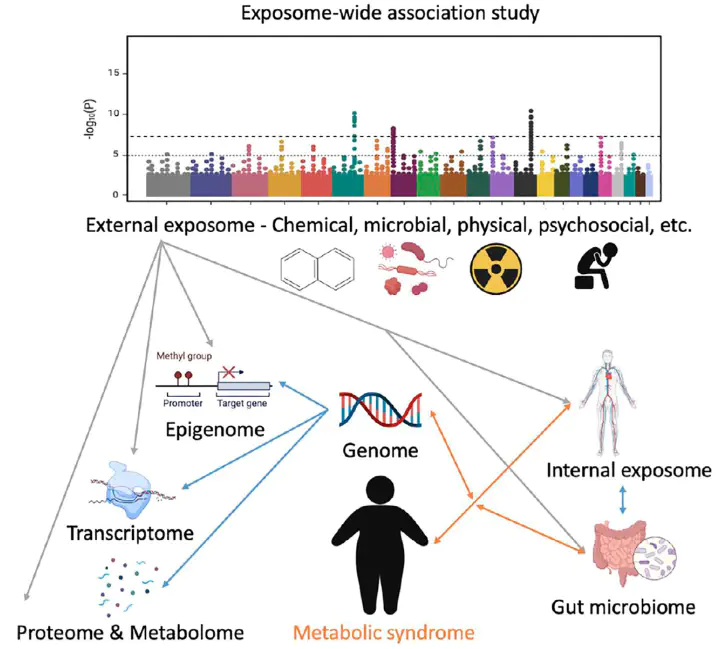Exposome-wide Association Study for Metabolic Syndrome

Abstract
Metabolic syndrome (MetS) is a group of conditions that happen concurrently which increases the risks of stroke, cardiovascular diseases, and type 2 diabetes. These conditions include elevated blood pressure, excessive waist fat, high blood sugar, and abnormal triglyceride or cholesterol levels. The increasing rate of MetS is becoming a health problem worldwide. MetS and its components are caused by the complex interactions between various genetic, behavioral, and environmental factors, whose detailed mechanistic understanding is unclear. Previously, significant advances have been made in identifying the genetic determinants, epigenetic alterations, and proteomic/metabolic networks that play essential roles in the etiology and progression of MetS. However, we are still uncertain about what environmental and lifestyle triggers the onset and progression of the individual’s abnormal metabolic alterations. As such, the genetic heritability of the MetS only ranges from 10 to 30%, indicating both genetic and environmental factors play essential roles. Although several contributing factors have been raised, such as insulin resistance, chronic inflammation, adipose tissue dysfunction, oxidative stress, microbiome imbalance, and circadian rhythm disorders, it is challenging to clarify which of them are triggers or results of MetS.